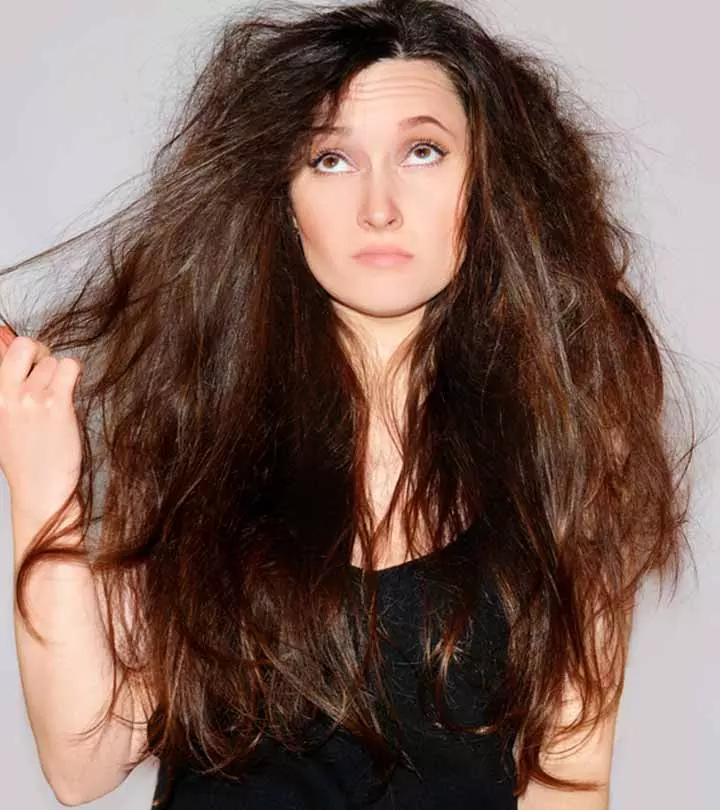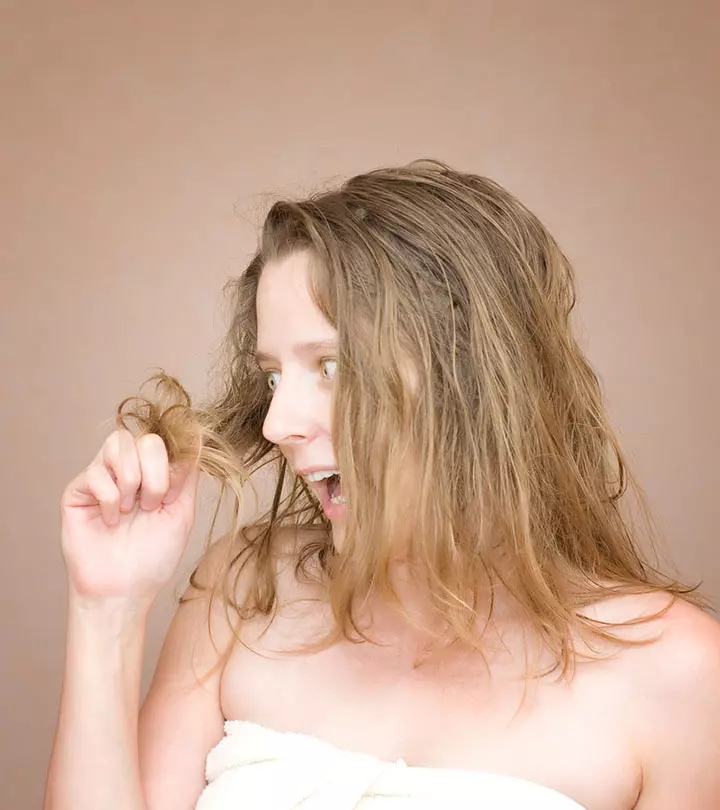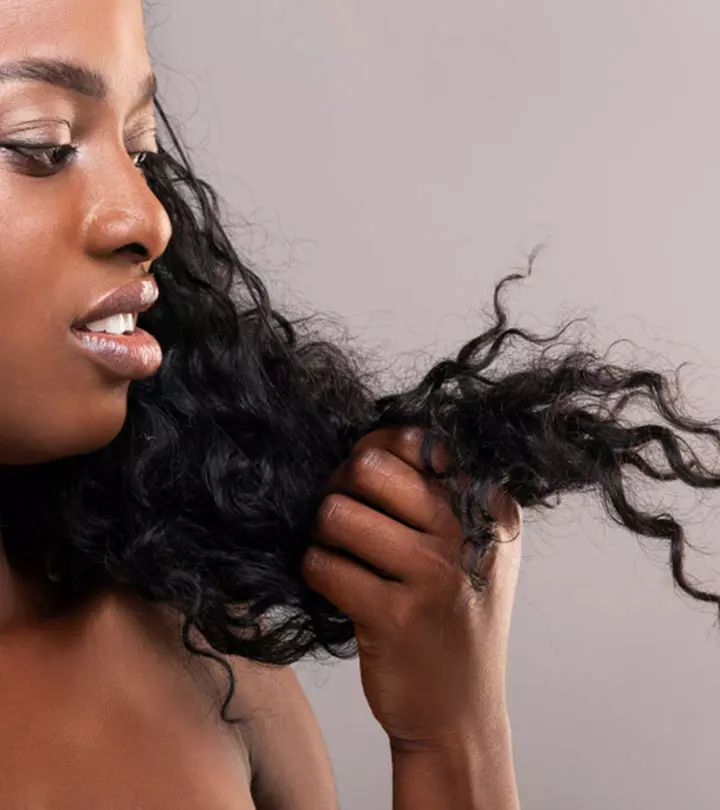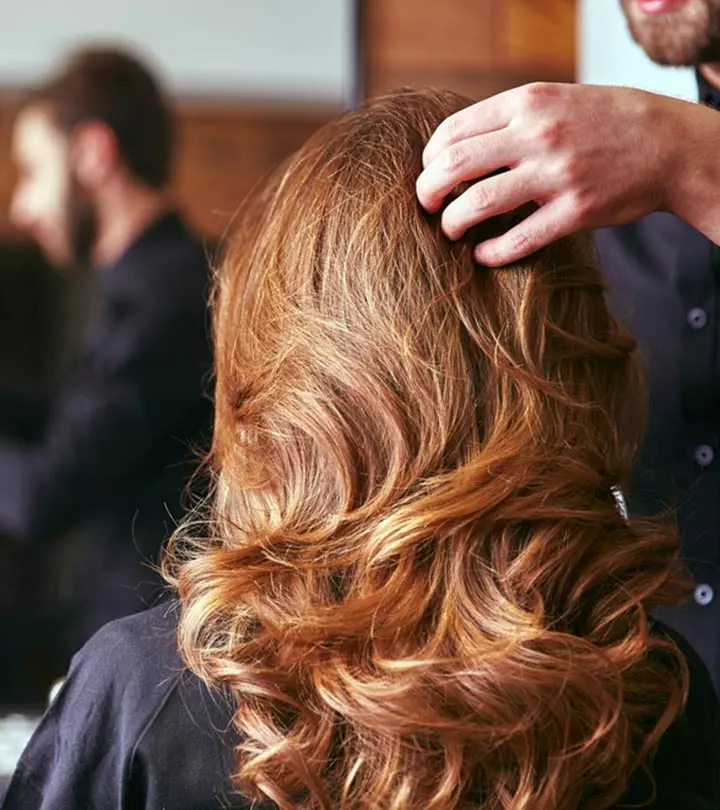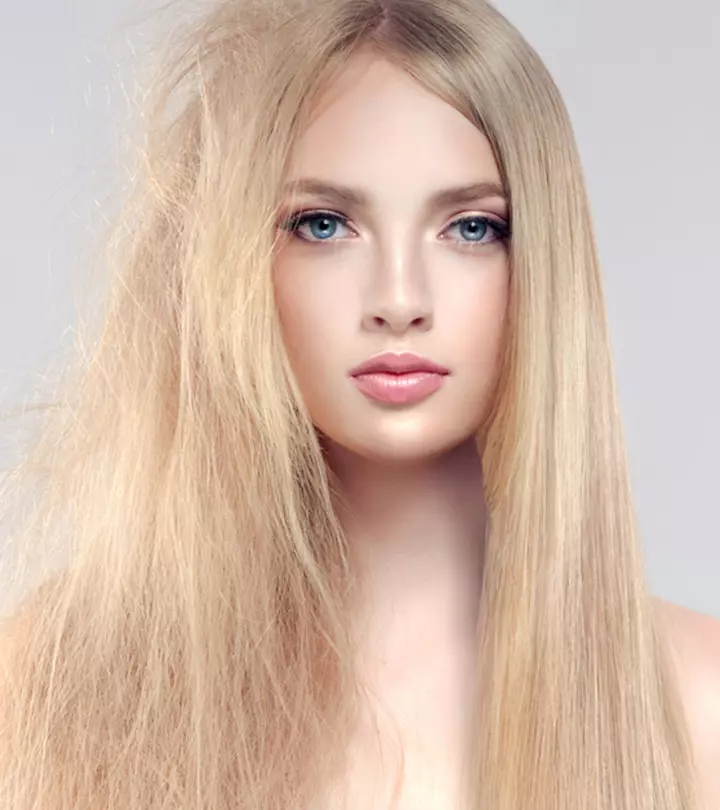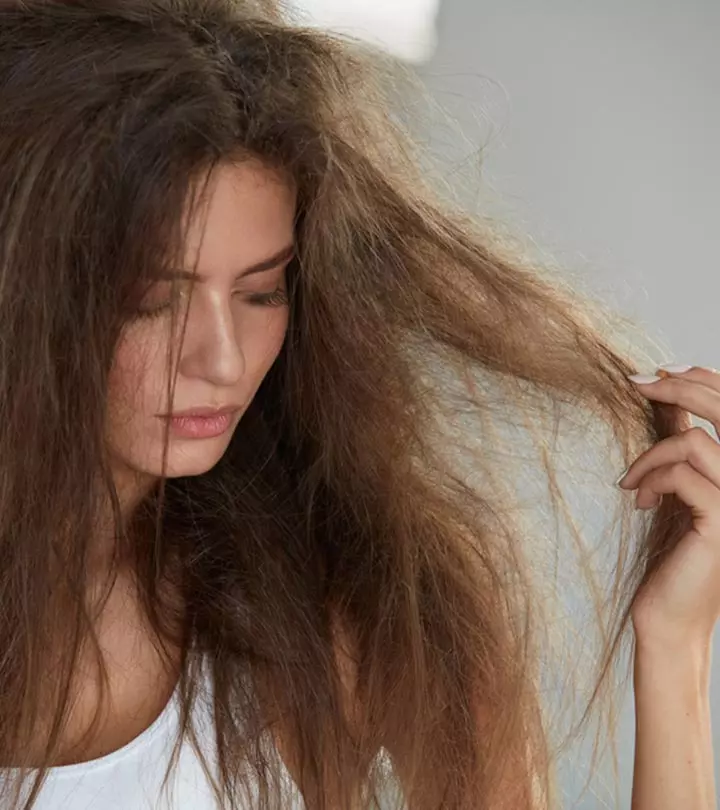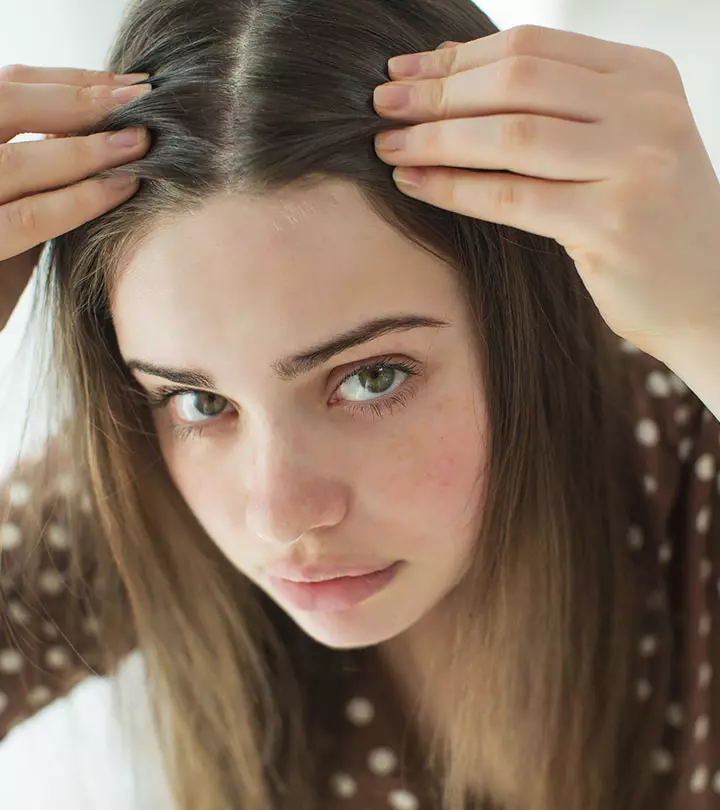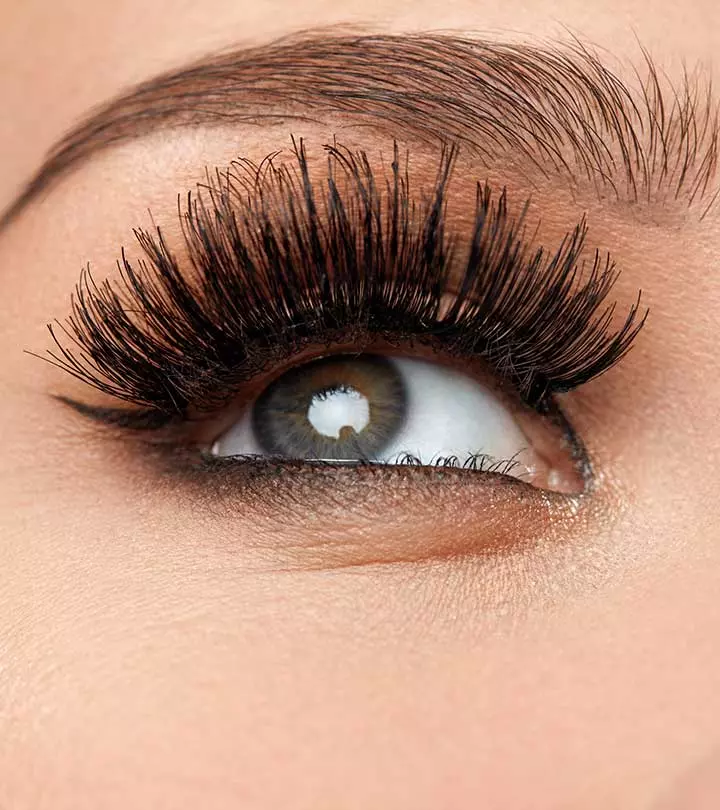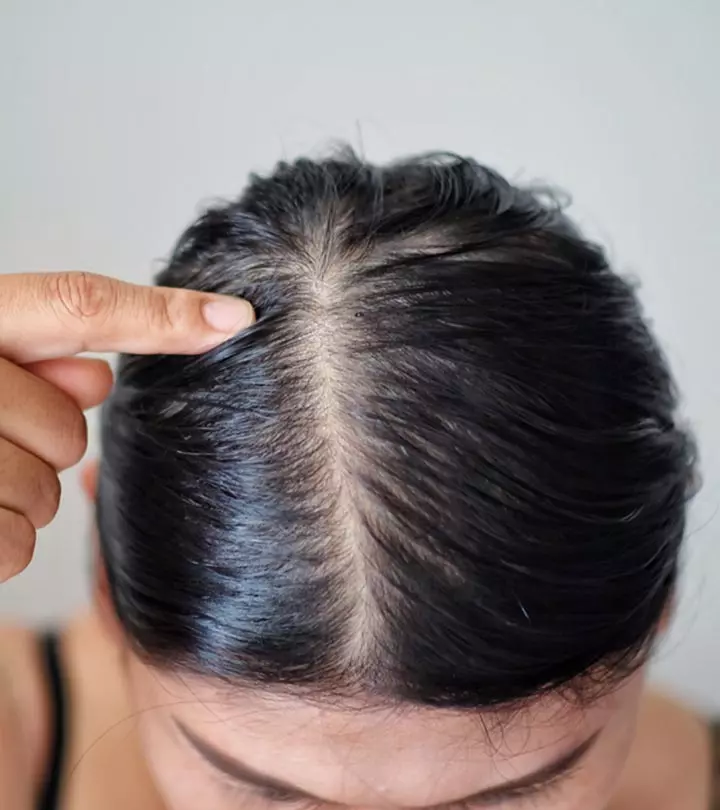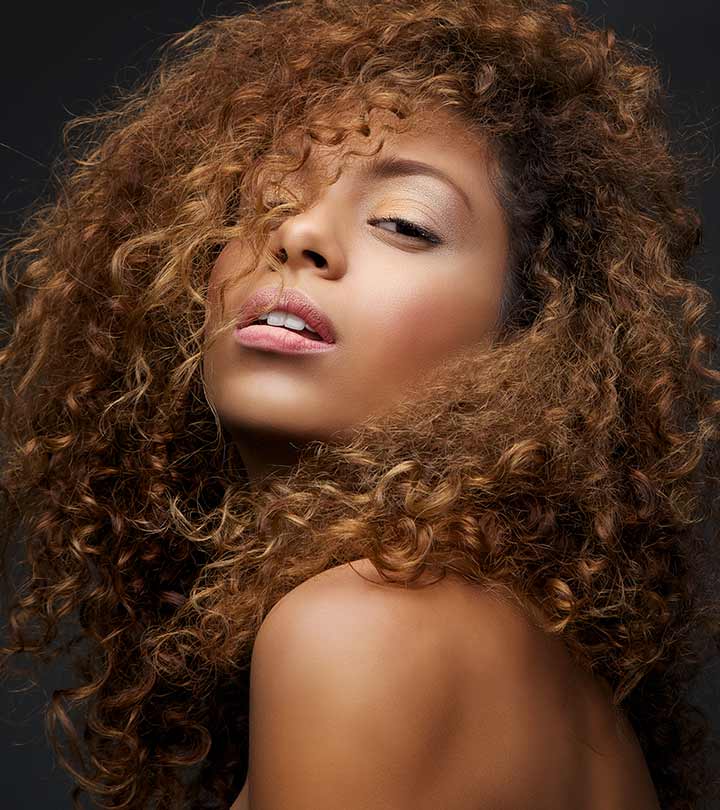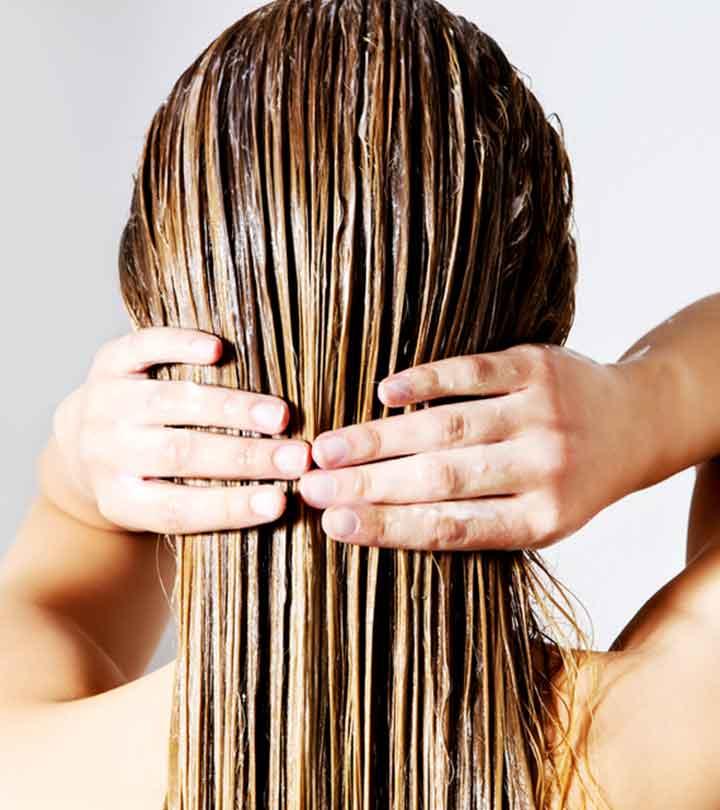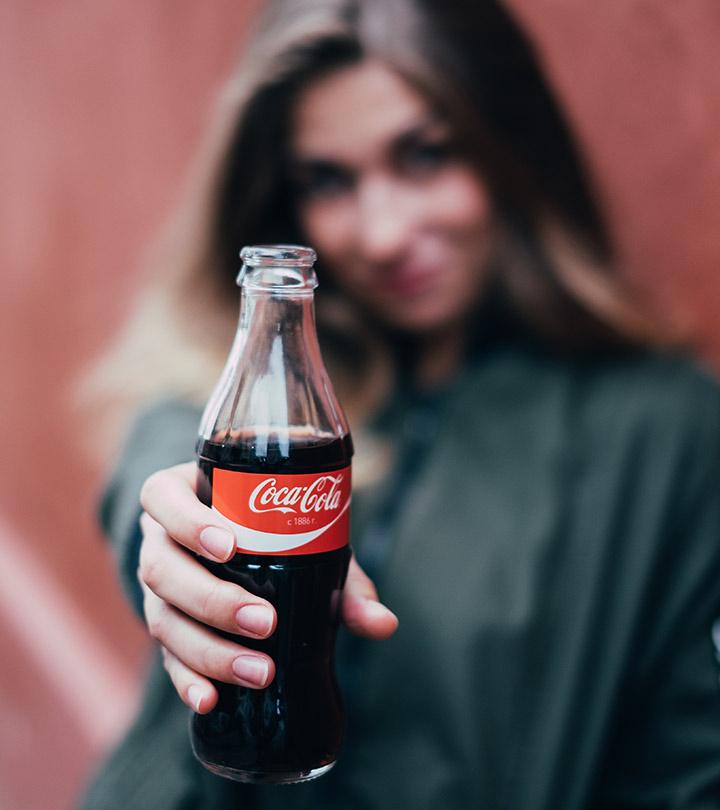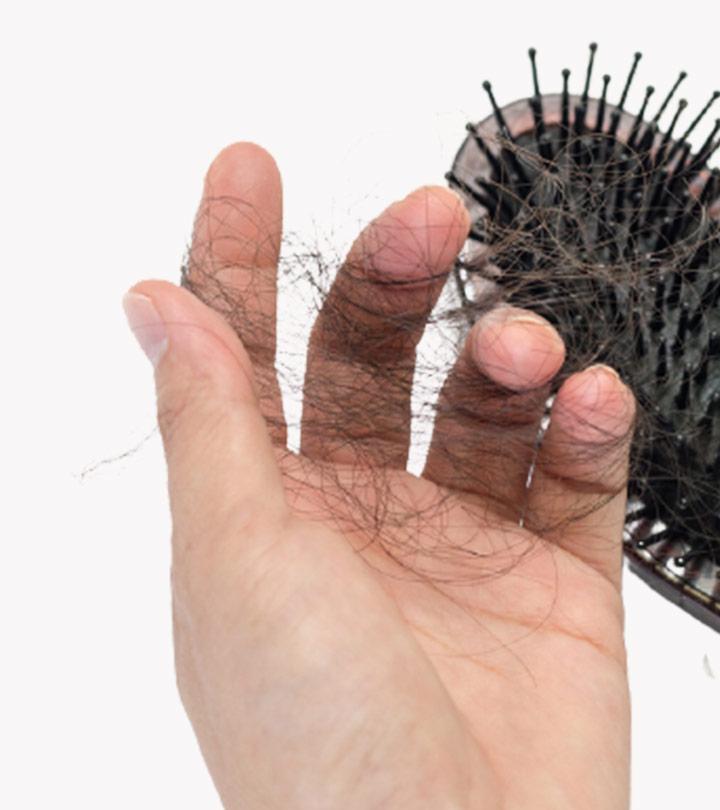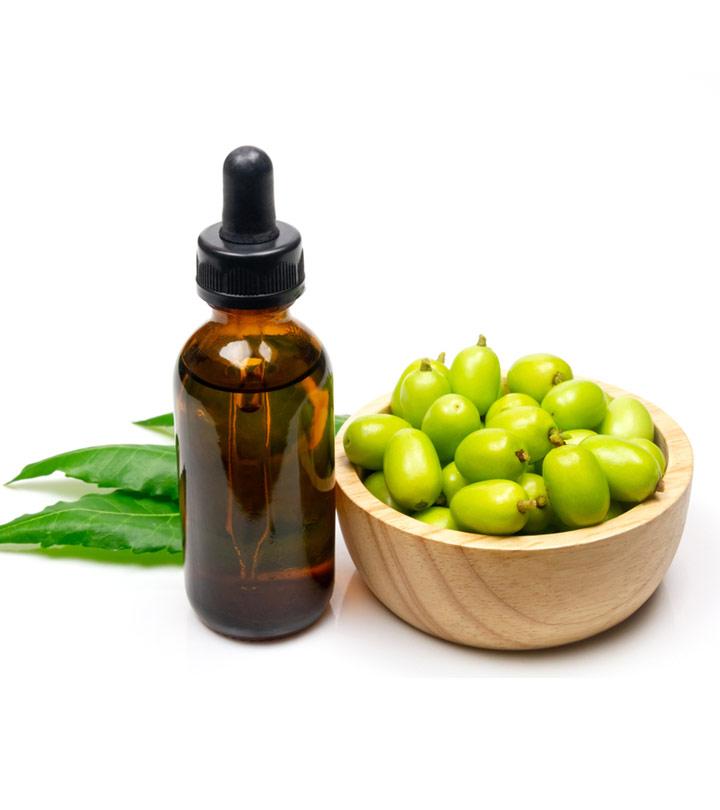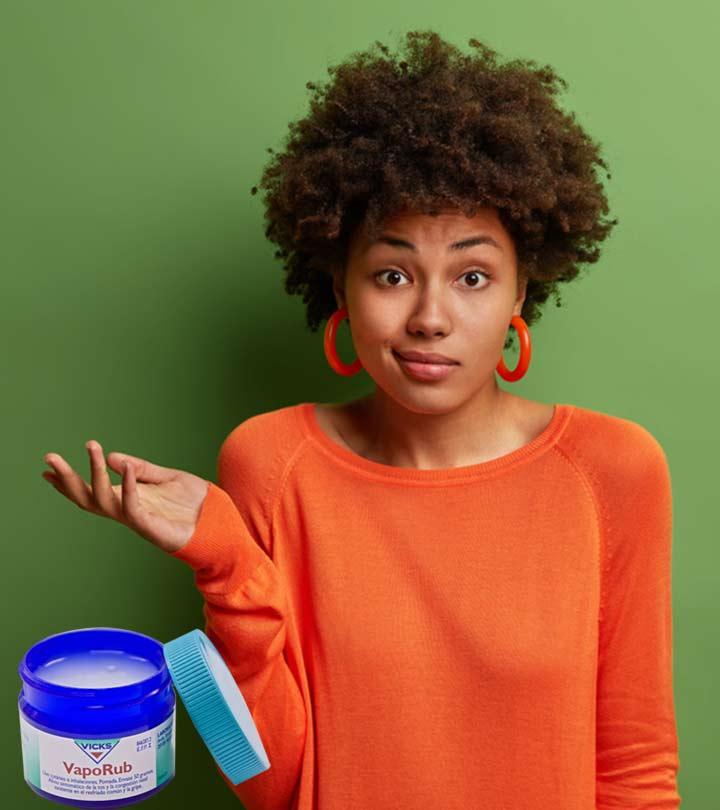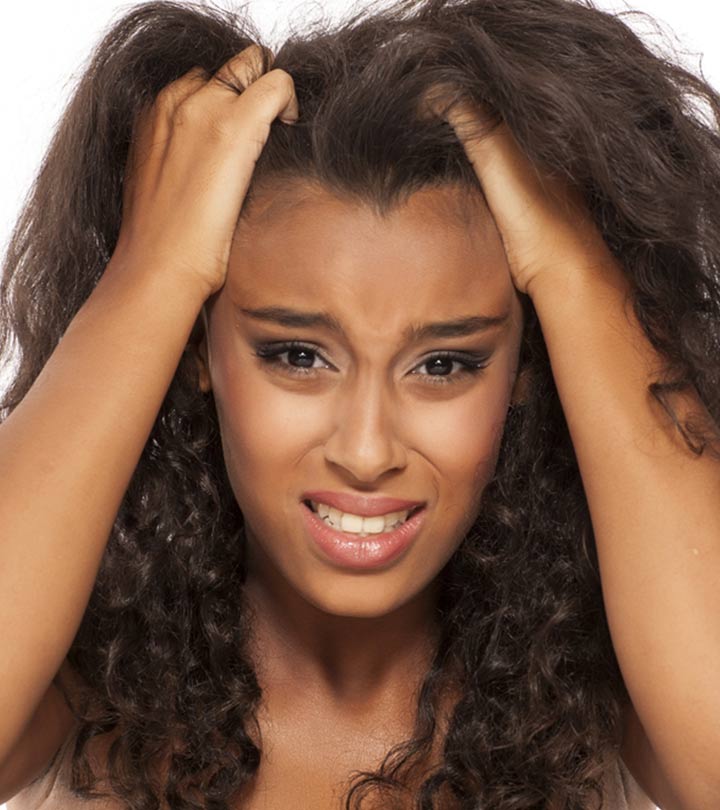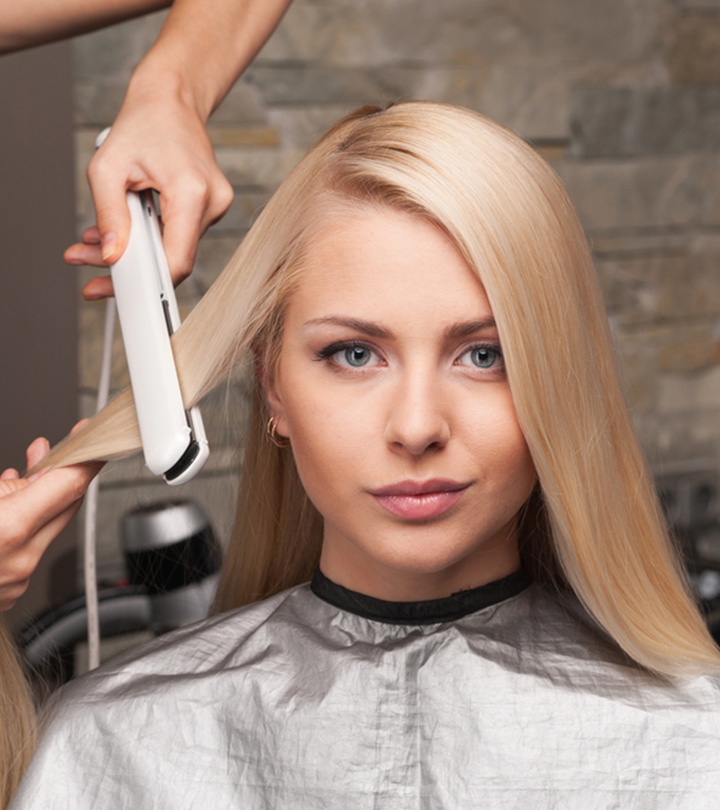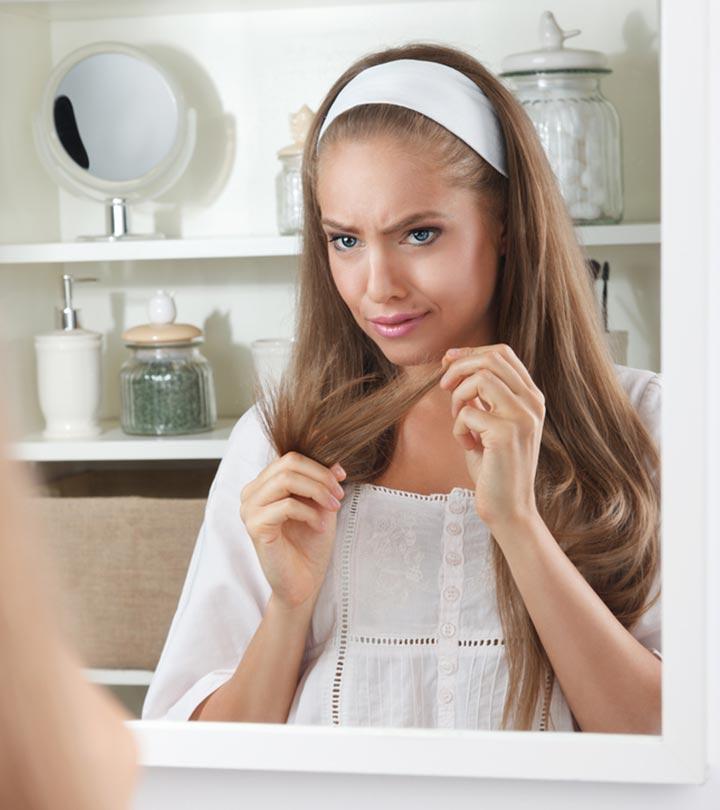Dry Hair: Causes And Remedies
Natural ways to overcome the challenges of dry hair and attain nourished and moisturized tresses
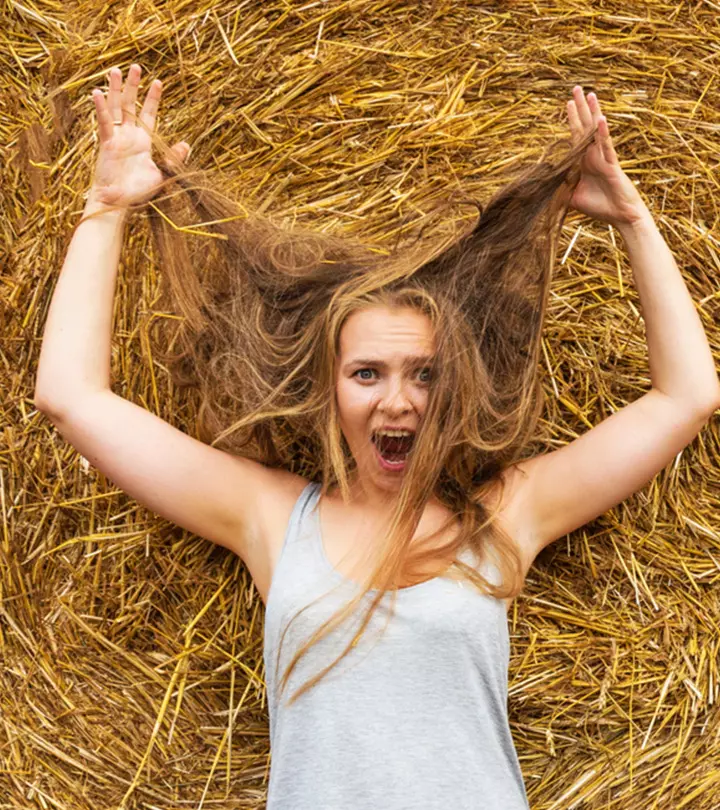
Many of us face the problem of dry hair. It happens when the scalp does not produce enough natural oils to moisturize the strands. Reasons like exposure to harsh chemicals, extreme conditions, and excess shampooing can lead to dry hair. If not treated on time, it can further damage the hair, leading to hair loss and other worse issues.
By making a few changes in your hair care routine, you can say goodbye to this problem. This article discusses all you need to know about dry hair — its reasons, ways to control it, home remedies, and much more. Keep scrolling to know more!
In This Article
What Does Dry Hair Look Like?
Dry hair is easy to identify. Here are the tell-tale signs:
- Appears frizzy.
- Has a coarse texture.
- Lacks luster.
- Has visible split ends.
- There are flyaways (due to breakage)
- Feels limp, without much movement and bounce.
- May appear reddish-brown (lightened color). However, this may indicate further damage.
You may also notice:
- Dandruff
- Itchy scalp
- Flakiness
- Knots and tangles
The hair dries out when the scalp does not produce enough natural oils to moisturize the strands. This oil, known as sebum, coats the hair strands to protect them and prevent moisture loss. Any disturbance in this process can leave your hair looking dry, frizzy, and dull.
In the next section, let’s take a look at the possible causes of dry hair.
What Causes Dry Hair?
1. Dry Scalp
A dry scalp is an obvious reason behind dry hair. A dry scalp cannot produce enough natural oils to keep the hair strands moisturized, causing dry hair, flakiness, and an itchy scalp.
2. Exposure To Harsh Chemical
Dyes, chemical relaxers, and other procedures that chemically alter your hair’s look and feel can have adverse effects on your tresses in the long run. Using hair care products containing harsh chemicals like sulfates can strip the natural oils and cause dryness, frizz, and cuticle damage.
3. Exposure To Extreme Conditions
Extreme weather and environmental conditions like prolonged sun exposure, cold weather, frequent wind, and salty (or chlorinated) water exposure can dry out your tresses. Environmental pollution can cause oxidative damage and dry out the hair.
Other than these, wrong hair care practices can also ruin your locks and cause dryness. This include:
- Frequent shampooing
- Using a harsh shampoo
- Excessive use of heat styling tools
- Frequently blow drying on high heat setting
Even your diet plays a role in maintaining hair health. Nutritional imbalances can make the hair dry, damaged, and also cause hair fall (1).
Apart from the causes listed above, your lifestyle, location, and genetic history can result in dry, brittle hair. For the right treatment, you should observe and keep a note of these changes.
Does dry hair pave the way for damage and hair loss? Check out the following section for clarity.
Does Dry Hair Cause Hair Loss?
Dry hair may not directly cause hair loss, but it may contribute to hair damage and breakage. When hair lacks moisture, it becomes brittle and more prone to breakage, especially during combing or styling. Also, a dry scalp may result in dandruff and itching, causing increased hair shedding. While addressing dryness alone may not cure hair loss, maintaining adequate hydration through moisturizing treatments and gentle hair care practices can help minimize damage, promote overall hair health, and reduce the risk of breakage that may contribute to a thinner-looking mane.
To combat hair dryness and help restore its bounce and shine, try some of the treatments mentioned in the following section.
Dry Hair Treatments
Dry hair lacks moisture. Hence, the best way to treat dry hair is by moisturizing the hair. You may try:
1. Deep Conditioning
Use deep conditioning hair masks and leave-in conditioners to keep your hair moisturized. Look for ingredients like plant butter (shea or cocoa) and nourishing oils. These provide essential nutrients and help lock in moisture to smoothen the hair cuticles and reduce dryness.
2. Hot Oil Treatment Products
Hot oil treatments are usually done in salons. They involve massaging the scalp and hair with hair oils, such as argan, olive, and coconut, followed by putting your head under a steamer for better absorption. You may also try this at home. Warm any hair oil and massage it onto your scalp and hair. Wrap a warm towel around your head for 10-15 minutes or put on a shower cap.
3. Use Mild And Nourishing Shampoo
Use a mild shampoo that does not contain any harsh chemicals and drying ingredients like alcohol and SLS. This will help keep the cuticles flat and trap the moisture in the hair strands. Also, after shampooing, follow up with a conditioner.
4. Regular Trims
Split ends are a common sign of hair damage and dry hair. Regular trimming will eliminate the split ends and prevent frizzy hair.
 Did You Know?
Did You Know?Other than these, you can try a few home remedies to prevent dry hair.
Home Remedies For Dry Hair
1. Oiling
Oiling helps protect the strands and moisturize dry and frizzy hair. You can use argan, olive, coconut, Brazilian nut, and avocado oils to nourish your hair. Leave it on for an hour and then wash it off. You can also mix different oils and apply them to your hair.
You Will Need
- 1 tablespoon of argan oil
- 1 tablespoon of almond, coconut, or avocado oil
- Towel or shower cap
Procedure
- Mix the oils and heat the mixture to a lukewarm temperature.
- Massage the scalp and hair with the oil blend.
- Wrap a towel around your head or put on a shower cap
- Leave the nourishing oil blend on for an hour.
- Rinse with shampoo.
- Repeat every alternate day.
2. Yogurt And Coconut Oil Mask
Yogurt is popularly used in DIY hair masks and helps moisturize the hair. Coconut oil penetrates the hair to moisturize it from within and prevent hair damage (2).
You Will Need
- 1 cup of yogurt
- 2 tablespoons of coconut oil
- Shower cap
Procedure
- Mix the coconut oil and yogurt.
- Apply it to the scalp and hair and put on the shower cap.
- Leave it on for 20 minutes.
- Rinse with lukewarm water.
3. Honey And Banana Mask
Honey is an emollient and moisturizing agent. Bananas can also moisturize the hair and improve its shine and manageability (3), (4). These two ingredients make for an effective home remedy for dry hair and scalp.
You Will Need
- 1 ripe banana
- 1 tablespoon of organic honey
- A bowl
- A fork
Procedure
- Mash the ripe banana and mix it with honey.
- Apply the mask to your scalp and hair.
- Shampoo after 20 minutes and follow up with a conditioner.
4. Apple Cider Vinegar Wash
You may find that your scalp is oily, yet your hair is dry. In this case, you can try washing it with apple cider vinegar (ACV). It is a popular home remedy and can improve hair shine and softness.
You Will Need
- 1 tablespoon of ACV
- 1 cup of water
Note: Adjust the quantity as per the hair length.
Procedure
- Mix the ACV and water and pour it in a bottle.
- Shake it well and use it as a post-shampoo rinse.
- Leave it on for 3 minutes and rinse again.
For healthy hair year-round, it is important to take a little precaution and care. Here are some tips to avoid dry hair.
Tips To Avoid Dry Hair
- Ensure that you stay hydrated – it keeps skin and hair healthy.
- If you live in an area with extreme dry and cold weather, use a humidifier to regulate moisture inside your home. This can prevent skin, scalp, and hair dryness.
- If you are heading to the beach or for a swim, apply a little oil or leave-in conditioner to your hair. Wear a protective cap to prevent chlorinated or saltwater from getting into your hair.
- Use a silk pillowcase to minimize friction and hair breakage.
- Do not comb your hair when wet. It causes more friction and can damage the strands.
- Avoid excessive heat styling. Use heat protectants to minimize dryness. Also, use heat styling tools on a low setting.
- Switch to hair products that target specific hair concerns. Use products that contain moisturizing ingredients.
- When stepping out, wear a hat to prevent UV exposure and hair damage.
- Do not shampoo frequently as it may strip the natural oils.
- Never use hot water for washing your hair. Always use either room temperature water or lukewarm water.
 Pro Tip
Pro TipMultiple factors may dry out your hair, and the first step to improving dry hair is to identify the reasons. We hope this article gave you an idea about the possible reasons for dry hair and how to deal with it. If you notice any changes in the hair texture, follow the tips shared in the article. The treatment methods and home remedies may help soften your hair and make them shiny. Also, remember to follow a proper hair care routine, drink plenty of water, and consume a healthy diet to provide all nutrients to your hair. However, if an underlying issue causes your dry hair, consult a doctor for diagnosis and follow the prescribed treatment.
Frequently Asked Questions
Which oil is best for dry hair?
Argan oil is considered the best oil for hydrating and nourishing dry hair. However, there is not enough scientific evidence to back its efficacy.
Does dry hair mean damaged hair?
No. Dry hair has a coarse texture due to a lack of natural oils, while damaged hair breaks easily and has split ends.
Does hair get drier with age?
It might. The oil glands may shrink with age, making your hair look drier.
References
Articles on StyleCraze are backed by verified information from peer-reviewed and academic research papers, reputed organizations, research institutions, and medical associations to ensure accuracy and relevance. Read our editorial policy to learn more.
- Nutrition and hair
https://www.sciencedirect.com/science/article/abs/pii/S0738081X10000623 - A Study on Scalp Hair Health and Hair Care Practices among Malaysian Medical Students
https://www.ncbi.nlm.nih.gov/pmc/articles/PMC5551307/ - Honey in dermatology and skin care: a review
https://pubmed.ncbi.nlm.nih.gov/24305429/ - Traditional and Medicinal Uses of Banana
https://www.phytojournal.com/vol1Issue3/Issue_sept_2012/9.1.pdf
Read full bio of Dr. Shruti Chavan
Read full bio of Anjali Sayee
Read full bio of Swathi E





